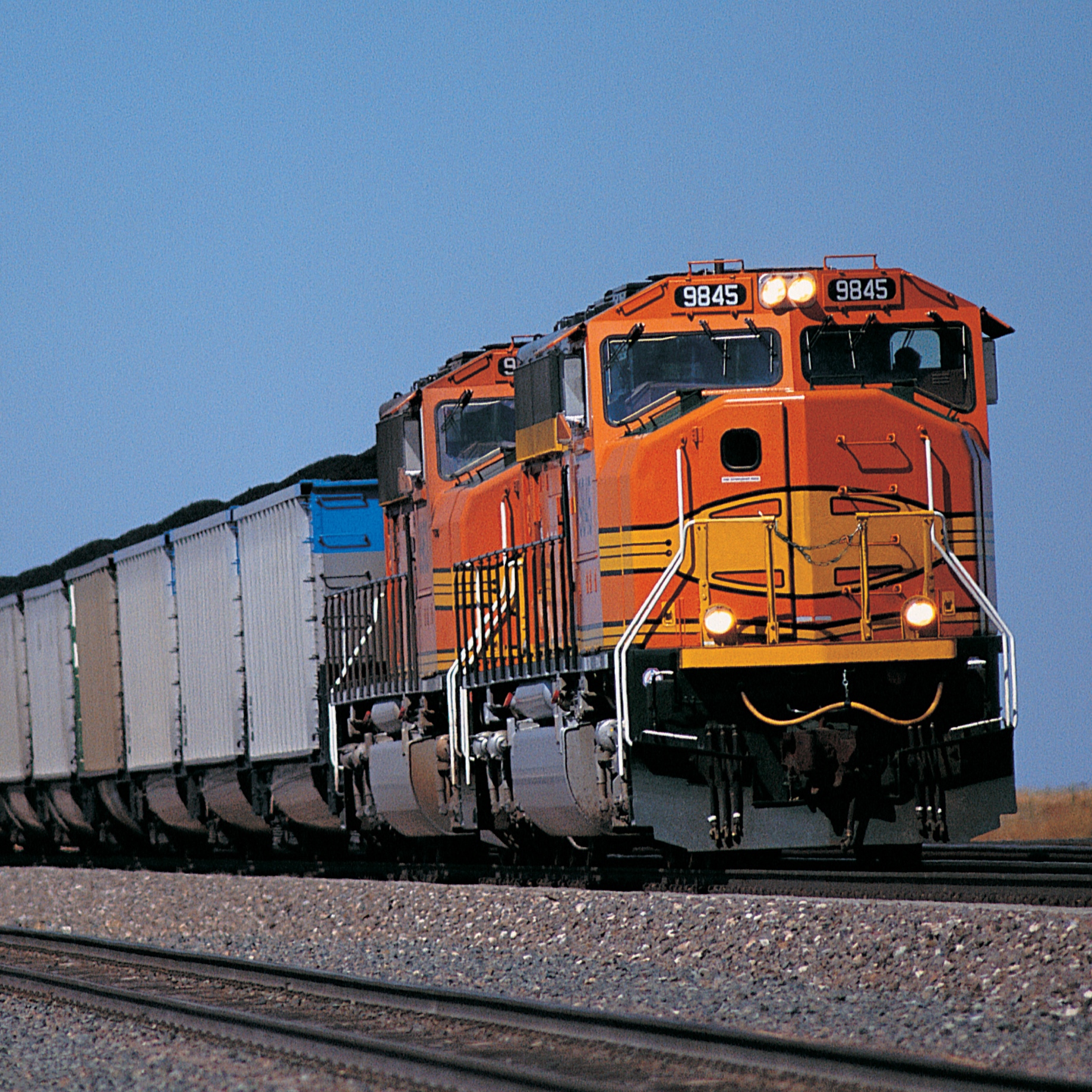
Historically, railroads have been a large part of the U.S. economy, enabling the affordable transport of goods across the continent. Coal has been a staple of what these companies ship for a long time, but a recent weakness in coal calls into question the strength of railroads. One key analyst gave some insight on this predicament and where railroad companies stand to go from there.
Merrill Lynch weighed in on these rail companies: CSX Corp. (NYSE: CSX), Union Pacific Corp. (NYSE: UNP), Kansas City Southern (NYSE: KSU), Genesee & Wyoming Inc. (NYSE: GWR) and Canadian National Railway Co. (NYSE: CNI).
Merrill Lynch downgraded all these, with the exception of Canadian National. The reasoning behind this is that volumes have accelerated to the downside and the firm puts its estimates well below Wall Street’s targets, based on trends expected to continue into 2016.
The firm downgraded CSX and Union Pacific to a Neutral rating from Buy as it increasingly avoids rails with significant coal exposure. At the same time, Kansas City Southern and Genesee were moved to Underperform from Neutral, given KSU’s growth premium and slowing growth and Genesee’s commodity exposure. However, Merrill Lynch reiterated its Buy on Canadian National, which has significantly lower coal exposure, robust intermodal share gains and attractive risk/reward returns.
In the report Merrill Lynch said:
We upgraded most of the rails and trucks in September after having been increasingly negative on the sector starting last Fall, as we expected a volume floor had been reached. The 6-8 week period of sustained -3% carloads widened to a 5% run-rate decline in an intervening 3-week period before accelerating further to -7% last week. This does not bode well for the start of 2016 given the breadth of volume declines. We have moved significantly below Street targets and anticipate further capitulation to put additional pressure on stocks. During the Great Recession, stocks fell 64% peak-to-trough, more than double the 30% decline currently. If we estimate that 2016 represents trough earnings (we’ll call it trough despite our estimates targeting 4 of 5 to post EPS growth, albeit tempered), and we place trough multiples on ‘peak’ earnings, and consider that if earnings fall, ‘trough’ multiples may be placed on targets, CNI provides the best risk-reward option, while KSU and GWR could see additional pressure.
According to Merrill Lynch, rail carloadings are trending down 5.5% in in the fourth quarter, 150 basis points worse than the prior target, accelerating from the third quarter’s -3.0% pace, despite having a significantly easier comp. The declines in bulk freight are now compounded by increasingly negative consumer related commodities. The decline in coal has accelerated given reduced domestic and export demand, rising inventories and low natural gas prices. While the decline in coal, crude-byrail, grain and metals is larger than expected, the surprise is the negative turn at intermodal and forest products, which continue to accelerate downward. Intermodal volumes are down at 5 of the 7 class I rails, averaging a 3% downtick.
Shares of CSX were trading at $26.50 Friday, with a consensus analyst price target of $31.69 and a 52-week trading range of $24.47 to $37.67.
Union Pacific shares were trading at $78.10.50, with a consensus price target of $104.44 and a 52-week trading range of $77.03 to $124.52.
Kansas City Southern was trading at $81.40. Its consensus price target is $99.00, and the 52-week range is $80.61 to $123.96.
Shares of Genesee were last seen at $62.22, within a 52-week range of $57.29 to $105.49. The consensus price target is $81.33.
Canadian National was trading at $57.37, with a consensus price target of $63.17 and a 52-week range of $52.00 to $71.11.
The Average American Has No Idea How Much Money You Can Make Today (Sponsor)
The last few years made people forget how much banks and CD’s can pay. Meanwhile, interest rates have spiked and many can afford to pay you much more, but most are keeping yields low and hoping you won’t notice.
But there is good news. To win qualified customers, some accounts are paying almost 10x the national average! That’s an incredible way to keep your money safe and earn more at the same time. Our top pick for high yield savings accounts includes other benefits as well. You can earn up to 3.80% with a Checking & Savings Account today Sign up and get up to $300 with direct deposit. No account fees. FDIC Insured.
Click here to see how much more you could be earning on your savings today. It takes just a few minutes to open an account to make your money work for you.
Our top pick for high yield savings accounts includes other benefits as well. You can earn up to 4.00% with a Checking & Savings Account from Sofi. Sign up and get up to $300 with direct deposit. No account fees. FDIC Insured.
Thank you for reading! Have some feedback for us?
Contact the 24/7 Wall St. editorial team.


